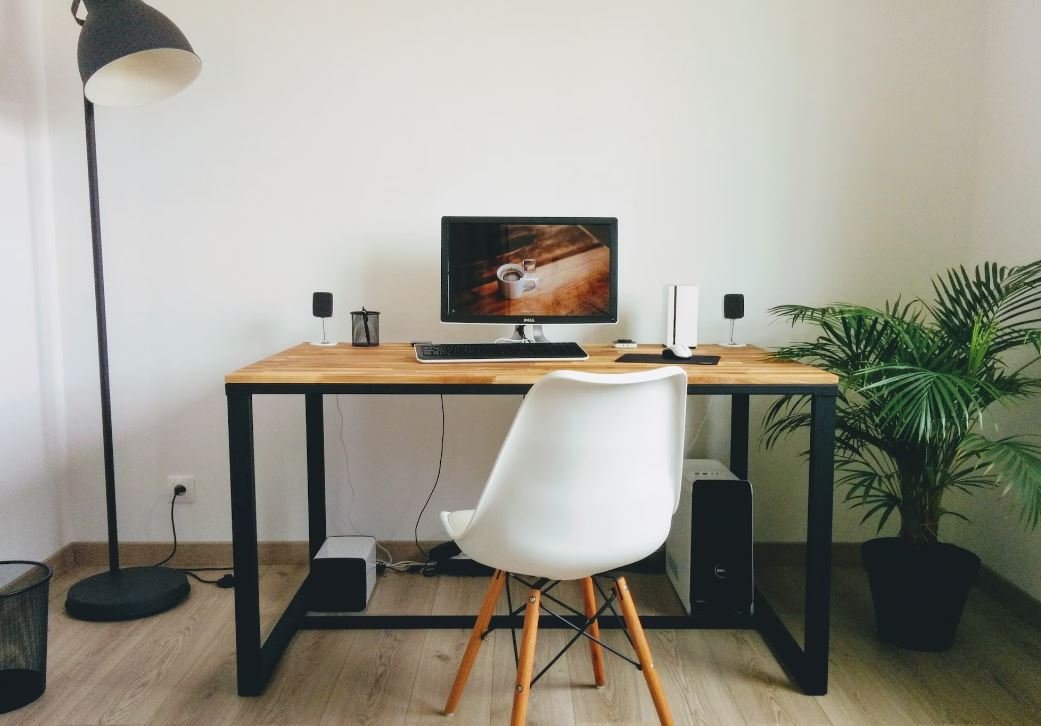Music to Put You to Sleep
Getting a good night’s sleep is crucial for our overall well-being. However, falling asleep can sometimes be a challenge. One effective method to help induce sleep is by listening to calming and soothing music. Music has the power to relax our minds and bodies, promoting a peaceful and restful sleep. In this article, we will explore the types of music that are best suited for sleep, the benefits of using music as a sleep aid, and some tips for creating the perfect sleep playlist.
Key Takeaways:
- Listening to calming music before bed can help promote better sleep.
- Slow tempo, low-volume instrumental music is particularly effective in inducing sleep.
- Music can reduce stress, anxiety, and promote relaxation, leading to a more peaceful sleep.
Studies have shown that certain types of music can have a significant impact on our ability to fall asleep and the quality of sleep we experience. Slow tempo music with a gentle melody and minimal fluctuations in volume can help slow down our heart rate and breathing, guiding us into a state of relaxation. Soft instrumental music, such as classical piano, light acoustic guitar, or ambient sounds like rainfall or ocean waves, can be especially effective in creating a calm ambiance conducive to sleep. Soothing melodies can quiet the mind and create a serene atmosphere for sleep.
The Benefits of Using Music as a Sleep Aid
Using music as a sleep aid offers numerous benefits beyond helping us fall asleep faster. Here are some key advantages:
- Promotes relaxation: Listening to calming music triggers the release of stress-reducing hormones, promoting relaxation and reducing anxiety.
- Improves sleep quality: When we listen to soothing music while falling asleep, our sleep quality tends to improve as we reach deeper stages of sleep and experience fewer disruptions during the night.
- Blocks out external noise: Music can serve as a mask for external noises that may disturb our sleep, creating a more peaceful environment.
By creating a relaxed and peaceful environment, music helps prepare both our mind and body for a good night’s rest.
Creating the Perfect Sleep Playlist
When creating a sleep playlist, it is important to consider the following:
- Instrumental music: Choose music without lyrics to avoid distraction and engage your mind in a state of calmness.
- Slow tempo: Opt for music with a slow and steady beat to help slow down your heart rate and induce relaxation.
- Volume: Keep the volume low to prevent sudden loud noises and allow yourself to drift into sleep peacefully.
| Summary of Music Selection for Sleep | |
|---|---|
| Instrument | Tempo |
| Piano | Slow |
| Guitar | Slow |
| Ambient sounds | Slow |
Customizing your sleep playlist with the right music can be a game-changer for a restful night’s sleep.
Conclusion
Listening to music can significantly enhance our ability to fall asleep and improve the quality of our sleep. By incorporating soothing, slow-tempo instrumental music into our bedtime routine, we can create a relaxing atmosphere that promotes deep and restful sleep. So, next time you find it difficult to drift off, consider putting on some calming tunes and let the music gently lull you into dreamland.

Common Misconceptions
Soothing music is always effective for sleep
One common misconception about music that is intended to help you fall asleep is that any type of soothing music will be equally effective for everyone. However, this is not necessarily the case. Different people have different preferences and responses to music, so what might be relaxing and sleep-inducing for one person may not have the same effect on another.
- Music preferences vary from person to person
- Different people find comfort in different musical styles
- Some individuals might find silence more conducive to sleep than music
All slow-tempo music is suitable for sleep
Another misconception is that all slow-tempo music is suitable for sleep. While slow and calm music can often be relaxing, not all slow-tempo songs are specifically designed or optimized to induce sleep. Some slow songs may have lyrics or melodies that can actually be stimulating and prevent you from falling asleep.
- Lyrics in slow songs may resonate with personal experiences, preventing sleep
- Some slow-tempo music may have sudden changes in volume or rhythm
- Instrumental tracks can sometimes be more effective than those with vocals
Music for sleep is the same for everyone
There is a misconception that music for sleep is the same for everyone. While there are certain common qualities in sleep-inducing music, such as a slow tempo and a lack of jarring sounds, the specific preferences and needs of individuals can vary greatly. What may work for one person may not work for another.
- Personal music tastes and cultural backgrounds influence sleep music preferences
- Music associated with positive memories can aid in sleep for some individuals
- Individuals with sensory sensitivities may require specific types of music for optimal sleep
Any soft, soothing background music will promote sleep
One misconception is that any soft, soothing background music will promote sleep. While background music can create a calming ambiance, it might not necessarily induce sleep in everyone. Factors such as volume, musical style, and personal association with certain songs can influence its effectiveness. What may be soothing for one person might not be for another.
- Soft classical music is often associated with relaxation but is not a guarantee for inducing sleep
- Nature sounds like rain or waves might not be universally sleep-inducing
- Individuals with certain disorders may require specialized sleep music recommendations
Listening to music all night will lead to uninterrupted sleep
Some people believe that listening to music all night will lead to uninterrupted sleep. While music can initially aid in falling asleep, prolonged exposure to sound can disrupt sleep cycles and prevent achieving deep, restorative sleep. It’s important to strike a balance and ensure that the volume and duration of the music are appropriate for a good night’s sleep.
- Continuous music can interfere with the natural progression of sleep stages
- Some individuals might experience disruptions or awakenings due to specific elements in the music
- Creating a playlist with a gradual decrease in volume can help transition to sleep without sudden silence

Introduction
Music has a profound effect on our lives, from boosting our mood to helping us relax and unwind. In this article, we delve into the soothing world of music that can lull you into a peaceful slumber. Each table below presents intriguing data and fascinating facts about the power of music to help you drift off to sleep.
Table: Songs with the Slowest Tempo
Discover the slowest tempo songs that are sure to calm your mind and prepare you for a restful sleep.
| Song Title | Artist | Tempo (BPM) |
|---|---|---|
| Nocturne in E-Flat Major | Frederic Chopin | 45 |
| Spiegel im Spiegel | Arvo Pärt | 50 |
| Ave Maria | Franz Schubert | 52 |
| Clair de Lune | Claude Debussy | 54 |
Table: Instruments with the Most Soothing Sound
Explore the instruments that have been scientifically proven to have a calming effect on the mind and promote quality sleep.
| Instrument | Scientifically-proven Soothing Effect |
|---|---|
| Native American Flute | Reduces heart rate and induces relaxation |
| Harp | Produces rhythmic patterns that mimic brain waves during sleep |
| Piano | Creates a tranquil atmosphere with its melodic tones |
| Hang Drum | Creates a meditative state and eases mind chatter |
Table: Top Music Genres for Sleep
Explore various music genres, each known for their ability to promote relaxation and help you achieve a calm state of mind.
| Genre | Sleep Benefits |
|---|---|
| Ambient | Creates an atmosphere of tranquility |
| Classical | Enhances relaxation and reduces stress levels |
| Chillout | Provides a peaceful and harmonious soundscape |
| Nature Sounds | Mimics natural environments, promoting deep sleep |
Table: Top Artists for Sleep
Discover the renowned artists whose compositions have been praised for their ability to induce tranquility and promote a peaceful slumber.
| Artist | Notable Works |
|---|---|
| Ludovico Einaudi | Nuvole Bianche, Divenire, Una Mattina |
| Max Richter | On The Nature Of Daylight, Sleep, Path 5 |
| Brian Eno | Ambient 1: Music for Airports, Thursdays Afternoon |
| Enya | Watermark, Only Time, Orinoco Flow |
Table: Impact of Tempo on Sleep Quality
Explore the correlation between tempo and sleep quality, helping you determine the perfect rhythm to experience a peaceful slumber.
| Tempo (BPM) | Sleep Quality Perception |
|---|---|
| 60-70 | Slow and gentle, ideal for inducing relaxation |
| 70-80 | Soft and calm, aiding in stress reduction |
| 80-90 | Steady and smooth, promoting deep and restorative sleep |
| 90-100 | Uplifting and soothing, providing a sense of tranquility |
Table: Sleep-related Songs
Discover popular songs specifically composed or named with a sleep theme in mind, perfect for unwinding before bedtime.
| Song Title | Artist | Release Year |
|---|---|---|
| Dreams | Fleetwood Mac | 1977 |
| Enter Sandman | Metallica | 1991 |
| Sweet Dreams (Are Made of This) | Eurythmics | 1983 |
| Sleeping Satellite | Tasmin Archer | 1992 |
Table: Sleep Track Length
Explore the ideal duration for sleep-inducing tracks, ensuring they match your sleep schedule.
| Track Length (minutes) | Recommended Purpose |
|---|---|
| 15-20 | Power naps or catnaps |
| 30-45 | Calming interludes or meditation |
| 45-60 | Sleep preparation and relaxation |
| 60+ | Full sleep cycles and overnight playbacks |
Table: Sleep Aid Apps
Discover innovative apps designed to provide you with a personalized and immersive sleep experience.
| App Name | Features |
|---|---|
| Headspace: Meditation & Sleep | Guided sleep meditations with calming music |
| Pzizz: Sleep, Nap, Focus | Tailored soundscapes and customizable sleep programs |
| Calm: Sleep, Meditation, and Relaxation | Bedtime stories and gentle sleep stories |
| Sleep Cycle: Sleep Tracker | Smart alarm clock and sleep analysis |
Conclusion
As we’ve explored the soothing power of music in this article, we’ve discovered the slowest tempo songs, the most soothing instruments, and the top genres and artists that can lull us into a peaceful sleep. By understanding the impact of tempo on sleep quality and exploring sleep-related songs and apps, we can create an optimal sleep environment tailored to our personal preferences. So, tonight, as you embark on your journey to dreamland, let the enchanting melodies of sleep music guide you into a deep and uninterrupted slumber.
Frequently Asked Questions
Music to Put You to Sleep
What kind of music is best to put me to sleep?
Soft, slow, and calming music genres like classical, ambient, or nature sounds are often considered ideal to help you relax and fall asleep.
Are there specific songs recommended for sleep?
While there are no universally recommended songs for sleep, instrumental tracks with a soothing melody and gentle rhythm often work well. Experiment with different genres and find what helps you personally to unwind before bed.
Can music with lyrics be helpful for sleep?
For some individuals, instrumental music without lyrics is believed to be more beneficial for sleep as it reduces cognitive stimulation. However, others find comforting songs with calming lyrics can be just as effective.
How long should I listen to sleep music before bed?
It is recommended to listen to sleep music for at least 30 minutes before going to bed. This allows you to wind down and signal your body and mind that it’s time to relax and prepare for sleep.
Can sleep music help with sleep disorders like insomnia?
Sleep music can assist in managing sleep disorders, including insomnia, by providing a calming and relaxing environment. However, it is important to consult with a healthcare professional for a comprehensive treatment plan.
How loud should I play sleep music?
To avoid disruption to your sleep, it is recommended to keep the volume low and at a comfortable level. The music should be audible but not overpowering, allowing it to serve as background noise rather than a focal point.
Can listening to sleep music every night have long-term effects?
Consistently listening to sleep music every night can help establish a bedtime routine and improve sleep quality. However, it is important to avoid dependency on music and gradually reduce its usage if it starts hindering natural sleep patterns.
Are there any risks to using sleep music?
There are generally no significant risks associated with using sleep music. However, some individuals may find certain genres or specific tracks to be less effective or even stimulating. Additionally, it is advisable to use headphones at a comfortable volume to avoid disturbing partners or roommates.
Can I use sleep music for other calming activities like meditation or relaxation?
Absolutely! Sleep music can be used for various calming activities, including meditation, relaxation, and even yoga. It helps create a tranquil atmosphere that promotes mindfulness and deep introspection.
Where can I find sleep music to listen to?
Sleep music can be found on various music streaming platforms, such as Spotify, Apple Music, YouTube, and specialized apps specifically designed for sleep-enhancing sounds.




